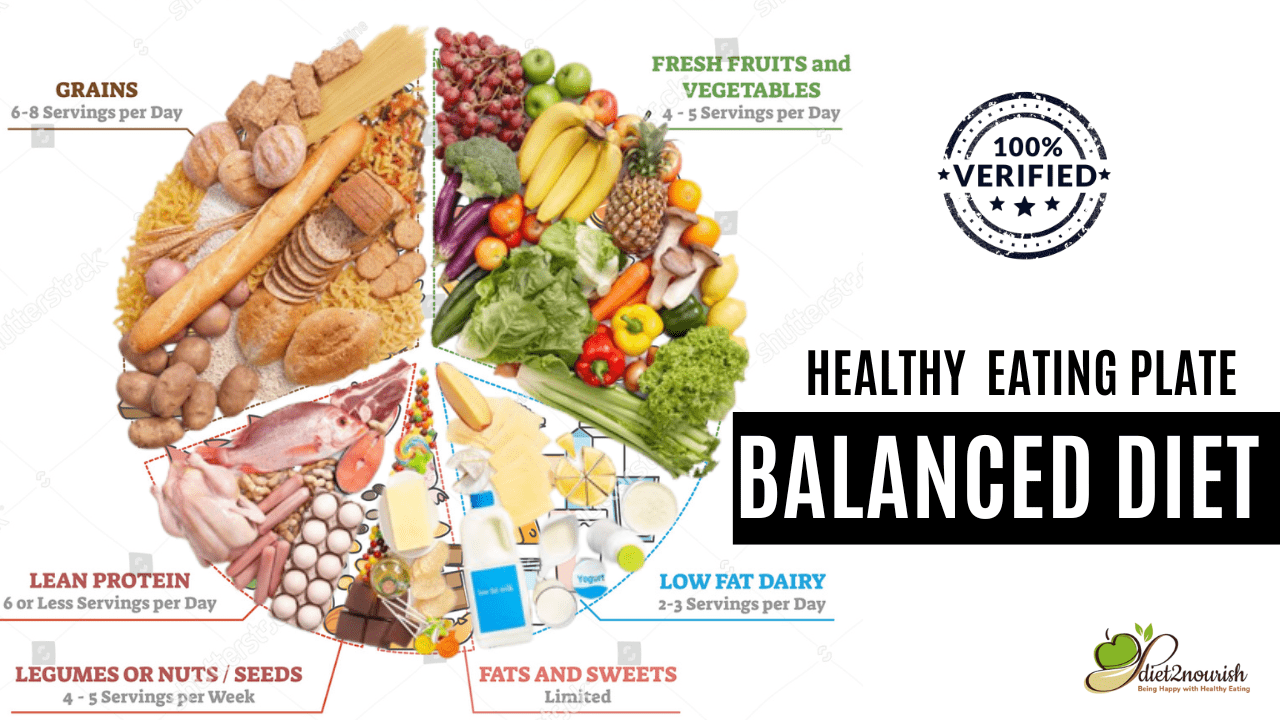How to Find the Perfect Balanced Diet Online from diet2nourish's blog
A balanced diet is one that provides all the essential nutrients that the body needs to function properly. These nutrients include carbohydrates, proteins, fats, vitamins, minerals, and water. A balanced diet can help maintain a healthy weight, prevent chronic diseases such as diabetes and heart disease, improve cognitive function, and promote overall health and well-being.
Here are some key components of a Balanced Diet
Carbohydrates: Carbohydrates are an important source of energy for the body. They are found in foods such as bread, pasta, rice, fruits, and vegetables. Carbohydrates should make up around 45-65% of the total calories consumed in a day.
Proteins: Proteins are essential for building and repairing tissues in the body. They are found in foods such as meat, fish, eggs, beans, and nuts. Proteins should make up around 10-35% of the total calories consumed in a day.
Fats: Fats are an important source of energy and help the body absorb vitamins. They are found in foods such as butter, oils, nuts, and fatty fish. However, it's important to choose healthy fats such as unsaturated fats found in fish, nuts, and vegetable oils, and limit unhealthy fats such as saturated and trans fats found in processed foods and animal products. Fats should make up around 20-35% of the total calories consumed in a day.
Vitamins and Minerals: Vitamins and minerals are essential for various functions in the body, including maintaining healthy bones, skin, and eyes, and supporting the immune system. They are found in foods such as fruits, vegetables, dairy products, and whole grains.
Water: Water is essential for various functions in the body, including maintaining body temperature, transporting nutrients, and removing waste products. It's recommended to drink around 8-10 glasses of water per day.
Eating a balanced diet does not mean eating a perfect diet every day. Rather, it's about making healthy choices consistently over time. Here are some tips for maintaining a balanced diet:
Eat a variety of foods: Eating a variety of foods ensures that the body gets all the essential nutrients it needs. Include fruits, vegetables, whole grains, lean proteins, and healthy fats in your diet.
Choose whole foods over processed foods: Whole foods are typically more nutrient-dense than processed foods, which are often high in calories, salt, and unhealthy fats. Choose whole foods such as fruits, vegetables, and whole grains, and limit processed foods such as chips, cookies, and sugary drinks.
Pay attention to portion sizes: Portion sizes can impact the number of calories consumed. Use smaller plates and bowls, and avoid eating straight from the package. Aim to fill half of your plate with fruits and vegetables, one-quarter with protein, and one-quarter with whole grains.
Limit added sugars and salt: Added sugars and salt can contribute to chronic diseases such as diabetes and heart disease. Limit intake of sugary drinks, sweets, and processed foods, and opt for natural sweeteners such as fruit instead. Use herbs and spices to add flavor to food instead of salt.
Stay hydrated: Drinking enough water is important for overall health and well-being. Choose water over sugary drinks, and drink water before meals to help with portion control.
In conclusion, a balanced diet is essential for overall health and well-being. A balanced diet should include a variety of foods, including carbohydrates, proteins, healthy fats, vitamins, and minerals. Paying attention to portion sizes, choosing whole foods over processed foods, limiting added sugars and salt, and staying hydrated can all help maintain a balanced diet. By making healthy choices consistently over time, a balanced diet can promote a healthy weight.


The Wall